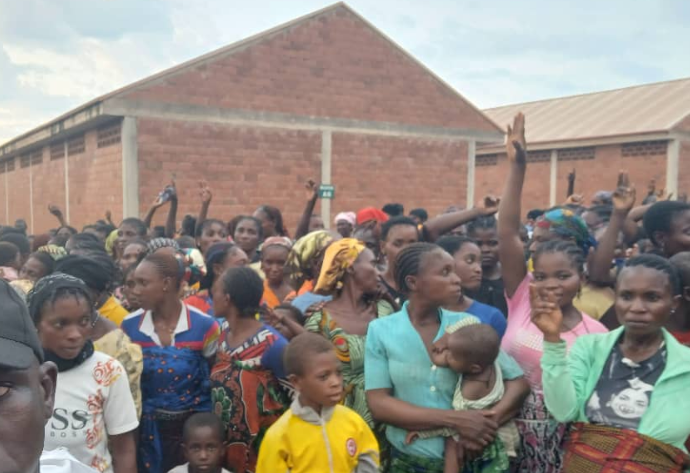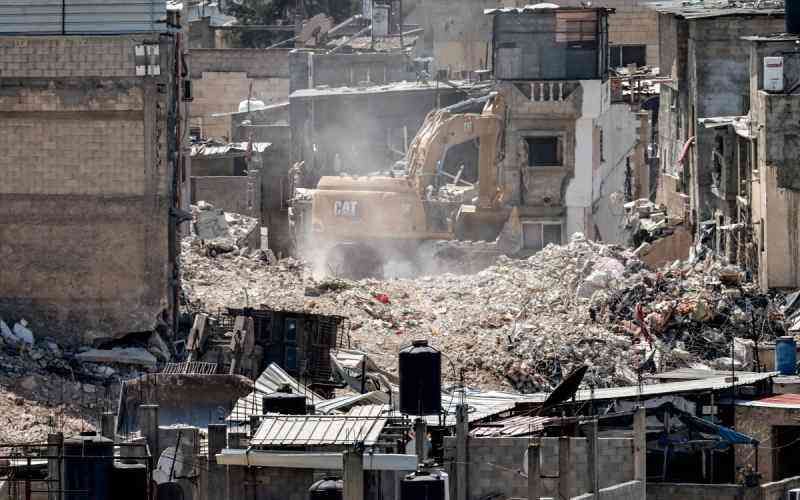UN reduces humanitarian aid request after major US funding cut
The United Nations has announced a 34 per cent reduction in its 2025 humanitarian aid appeal, citing the “deepest funding cuts ever”, led by a major withdrawal of support from the United States under President Donald Trump.
The UN Office for the Coordination of Humanitarian Affairs (OCHA) said it is now seeking $29 billion, down from the $44 billion it requested in December 2024, AFP reports.
The $44 billion was intended to support 180 million people across more than 70 countries. Under the revised plan, the UN says it can now only prioritise 114 million people facing life-threatening conditions.

Under Mr Trump, who assumed office in January, the United States, the world’s top donor, slashed its foreign aid, causing havoc in the humanitarian aid sector globally. Other donor countries have cut back their contributions in the face of an uncertain economic outlook.
“Brutal funding cuts leave us with brutal choices,” the Under-Secretary-General for Humanitarian Affairs and Emergency Relief, Tom Fletcher, was quoted as saying in a statement on Monday.
“All we ask is one per cent of what you chose to spend last year on war. But this isn’t just an appeal for money — it’s a call for global responsibility, for human solidarity, for a commitment to end the suffering.”
According to report, the UN has received only $5.6 billion out of the $44 billion (13 per cent) that it had requested while facing surging crises in Sudan, Gaza, the Democratic Republic of the Congo and Myanmar, among others.
“We have been forced into a triage of human survival,” Mr Fletcher said. “The math is cruel, and the consequences are heartbreaking. Too many people will not get the support they need, but we will save as many lives as we can with the resources we are given.”
Under the new guidelines, OCHA aid will be directed so that it can “reach the people and places facing the most urgent needs”, and support will be directed “on the planning already done for 2025.
This will ensure that limited resources are directed where they can do the most good — as quickly as possible,” the statement said.
The UN’s funding shortfall means that millions of people in urgent need may no longer receive food, medical care, shelter, or protection. Humanitarian operations rely heavily on international funding, including those responding to conflicts, disease outbreaks, and displacement.
The United Nations High Commissioner for Refugees (UNHCR) recently warned that without adequate resources, an estimated 12.8 million displaced people, including 6.3 million children, could be left without life-saving health interventions in 2025.
This funding shortfall comes at a time when several African countries are grappling with worsening humanitarian emergencies.
A key driver of this shift is the significant cut in US foreign assistance under the Trump administration.
One major programme affected is the President’s Emergency Plan for AIDS Relief (PEPFAR), a flagship US global health initiative that has supported HIV/AIDS response across Africa for over two decades.
Nigeria has been among the hardest hit when it comes to health interventions, mostly in HIV, TB, malaria and maternal health.
In response, the Nigerian government absorbed 28,000 health workers previously on USAID payroll, financed through a N300 billion boost to the 2025 health budget.
Support PREMIUM TIMES' journalism of integrity and credibility















